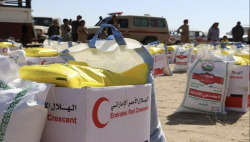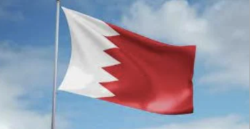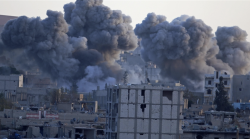Coronavirus: What does it mean for natural disaster response?
- 2020-05-21 05:52:34


 Pierre Rayer: Art, Science, and Happiness: The Universal Mission of Transmission to Future Generations through Patronage at the Louvre Abu Dhabi
Pierre Rayer: Art, Science, and Happiness: The Universal Mission of Transmission to Future Generations through Patronage at the Louvre Abu Dhabi Ahly crowned Super champions after dramatic extra-time win over Modern Future FC
Ahly crowned Super champions after dramatic extra-time win over Modern Future FC Yemeni Honey..A Development Wealth Threatened By Conflict And Climate Change
Yemeni Honey..A Development Wealth Threatened By Conflict And Climate Change California wildfires: Millions warned of possible power cut
California wildfires: Millions warned of possible power cut Central African rebels launch attacks near capital
Central African rebels launch attacks near capital The UAE and Its Role in Yemen… A Decade of Giving
The UAE and Its Role in Yemen… A Decade of Giving Rubio, Saudi FM Discuss Yemen Tensions and Regional Security
Rubio, Saudi FM Discuss Yemen Tensions and Regional Security Bahrain Commends Saudi and UAE Role in Supporting Yemen’s Stability
Bahrain Commends Saudi and UAE Role in Supporting Yemen’s Stability US, partner forces kill 7, capture 18 ISIS terrorists in Syria
US, partner forces kill 7, capture 18 ISIS terrorists in Syria Oman Reaffirms Call for Restraint and Dialogue Amid Yemen Developments
Oman Reaffirms Call for Restraint and Dialogue Amid Yemen Developments
